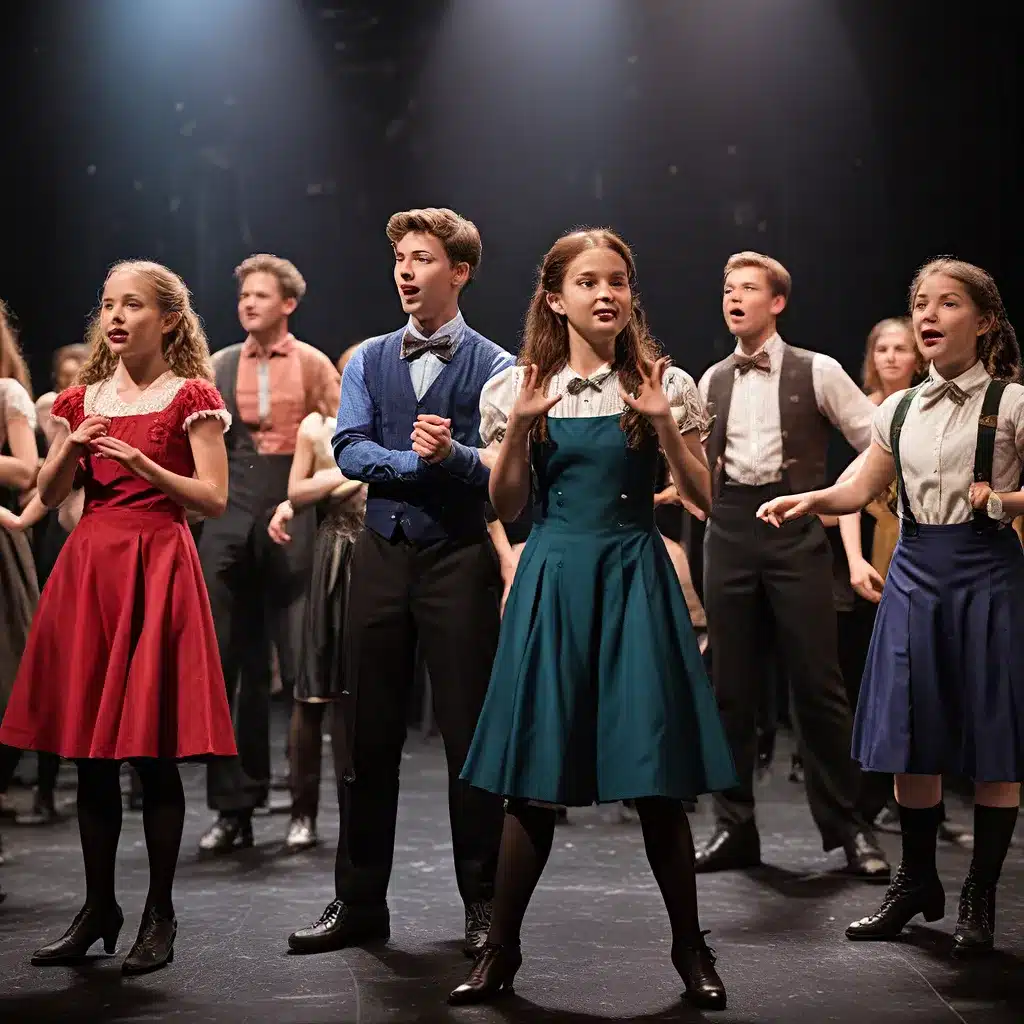
Embracing the Evolving Landscape of Musical Theater Education
As an aspiring composer, I’ve always been fascinated by the ever-changing landscape of musical theater. The art form that has captivated audiences for generations is now poised to undergo a transformative shift, and I can’t wait to share my insights with you.
Growing up, I was enamored by the grand productions of Broadway, where the magic of storytelling and the power of music collided in a captivating display. However, as I delved deeper into my studies at the University of Wisconsin-Eau Claire’s renowned music composition program, I began to realize that the future of musical theater education lies in embracing a more diverse and innovative approach.
Cultivating Compositional Versatility
One of the key aspects of the evolving musical theater curriculum is the emphasis on cultivating compositional versatility. Gone are the days when aspiring theater composers were expected to churn out formulaic ballads and upbeat production numbers. Today, the most successful creators are those who have mastered a wide range of compositional styles and techniques.
As I discovered at Berklee College of Music’s renowned musical theater writing program, the modern musical theater composer needs to be well-versed in everything from contemporary pop and rock idioms to more experimental and avant-garde compositional approaches. The ability to seamlessly blend these diverse elements is what sets the true innovators apart.
Bridging the Gap Between Theory and Practice
But it’s not just about mastering the technical aspects of composition. The future of musical theater education also lies in bridging the gap between theory and practice. At UW-Eau Claire, I had the incredible opportunity to collaborate with our university’s theater department, writing original scores for productions like “James and the Giant Peach” and “Disruption: Illusion vs. Reality.” These hands-on experiences helped me understand the unique challenges and considerations that come with composing for the stage.
Embracing Multidisciplinary Collaboration
Furthermore, the most successful musical theater programs of the future will likely embrace a multidisciplinary approach, encouraging students to collaborate with peers from diverse artistic backgrounds. At Jacob’s Pillow, for example, the musical theater dance program fosters a rich cross-pollination of talents, allowing composers, choreographers, and performers to work together in creating innovative new works.
This type of collaborative environment not only prepares students for the realities of the industry but also sparks new creative synergies that push the boundaries of the art form. By breaking down the traditional silos, we can cultivate a new generation of musical theater artists who are truly equipped to shape the future of the genre.
Embracing Technological Advancements
Of course, no discussion of the future of musical theater education would be complete without addressing the role of technology. As digital tools and platforms continue to evolve, the curriculum must adapt to ensure that students are well-versed in the latest techniques and technologies.
From virtual and augmented reality applications that can transform the stage experience to sophisticated music production software that allows for more diverse and immersive sonic landscapes, the future of musical theater is inextricably linked to technological advancement. And the most forward-thinking educational institutions will be those that embrace these innovations and integrate them seamlessly into their curriculum.
Fostering Artistic Individuality
But amidst all these changes, one thing remains constant: the need to nurture the artistic individuality of each student. The future of musical theater education should not be about churning out carbon copies of successful composers and lyricists, but rather empowering young artists to find and cultivate their own unique voices.
At UW-Eau Claire, I was encouraged to explore a wide range of compositional styles and techniques, always with the goal of helping me develop my own distinct musical language. This personalized approach, combined with the abundant opportunities to collaborate and perform, allowed me to grow as an artist in ways I never could have imagined.
Embracing the Diverse Voices of the Future
As I look ahead to the future of musical theater education, I see a landscape that is more inclusive, innovative, and responsive to the changing needs of both the industry and the audience. By embracing a multidisciplinary, technology-driven, and artistically empowering approach, the next generation of musical theater creators will be poised to redefine the art form and captivate audiences for years to come.
And who knows, perhaps one day, the Musical Theater Center will be the epicenter of this transformative shift, leading the charge and inspiring the next generation of musical theater visionaries. The possibilities are endless, and I can’t wait to see what the future holds.

